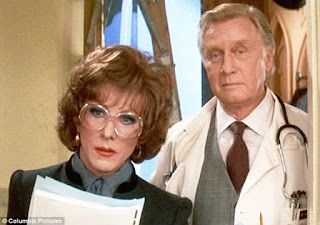Pearl Bailey, Musical Star and Humorist, Is Dead at 72
By JOHN S. WILSON
Pearl Bailey, the entertainer whose distinctive singing style was enhanced by herher mischievous witticisms and warm personality, died on Friday at Thomas Jefferson University Hospital in Philadelphia after collapsing at a hotel where she had been staying. She was 72 years old and lived in Lake Havasu, Arizona.
The cause of death was not immediately known. Miss Bailey had a long history of heart ailments and was recovering from knee surgery. A spokeswoman for the hospital, Elizabeth Samuels, said an autopsy was being conducted to determine the cause of death.
In a stage career that began in 1933 when she won first prize at an amateur night in Philadelphia and reached a peak with her 1967 starring role on Broadway in an all-black version of the musical ''Hello, Dolly!'' with Cab Calloway, Miss Bailey said she thought of herself as a singer and not an actress.
''I'm not a comedienne,'' she told an interviewer some years ago. ''I call myself a humorist. I tell stories to music and, thank God, in tune. I laugh at people who call me an actress.''
Her trademark was a warm, lusty singing voice accompanied by an easy smile and elegant gestures that charmed audiences and translated smoothly from the nightclub stage and Broadway to film and television.
On stage her ample figure, often swathed in fur and sparkling with rhinestones and jewels, was a magnet for audience attention as she tossed off a ballad in throwaway style.
''I've lost one of the greatest friends I've ever had in my life,'' Mr. Calloway said after learning of Miss Bailey's death. ''I've lost a co-worker and a wonderful person.''
Carol Channing, who had created the role of Dolly Gallagher Levi in the musical three years before Miss Bailey undertook the part, said: ''The entertainment world has lost one of its most creative performers of our time. Her talent was unique and enduring.''
Miss Bailey's husband, the jazz drummer Louis Bellson, to whom she was married for 38 years and who went with her to the hospital on Friday, said simply, ''I've lost my best friend.''
The singer had left the hospital on July 30 after undergoing surgery to replace her arthritic left knee with a metal and plastic joint. She was staying at a local hotel during a series of physical-therapy sessions. Her two sisters live in Philadelphia.
Mr. Bellson said they had been planning a visit to New York, where Miss Bailey was to give an address at the United Nations on Aug. 24.
''If I just sang a song,'' Pearl Bailey once said when she had been drawn into an analysis of her performing style, ''it would mean nothing.'' That is a debatable point. Her voice had a distinctively warm timbre and her natural vocal inflection was filled with fascinating colors and highlights.
Like Jelly Roll Morton, the great jazz pianist, who was fond of saying that he changed everything he played ''to Jelly Roll'' (as, in truth, he did), everything Miss Bailey sang came out ''Pearlie Mae style.'' This included the so-called risque songs that were a staple of her nightclub acts or the songs she sang in ''Hello, Dolly!'' ''House of Flowers,'' ''St. Louis Woman'' and other Broadway musicals.
In truth, Miss Bailey never ''just sang a song.'' The stage Pearl Bailey was a close reflection of the private Pearl Bailey.
She was a trouper in the old theatrical sense. She had fierce pride in the level and consistency of her performance, no matter what the circumstances. She was disturbed to see this quality going out of show business, and she sometimes talked of forming a troupe - she still thought of it as a vaudeville act long after there were no more vaudeville theaters where it could play - through which she could instill the old discipline of trouping in promising young performers.
Tall, buxom, exuberant and handsome, Pearl Bailey enraptured theater and nightclub audiences for a quarter-century. Her talents as an actress and singer were perhaps best blended in her role as the bumptious amateur matchmaker in ''Hello, Dolly!'' which she played on Broadway for two years.
At one point the show went to Washington and President Lyndon B. Johnson attended a performance. Waving to him at the curtain, Miss Bailey brought the house down with the remark, ''I didn't know this child was going to show up.'' Then she brought him on stage for a sing-along chorus of the title song. It was probably the first time that a President of the United States served as a chorus boy.
In films, she was celebrated chiefly for two roles - Maria in ''Porgy and Bess'' and Frankie, a roadhouse girl, in ''Carmen Jones.'' But Miss Bailey's gifts were best savored in the nightclub, where she was able to establish a marked degree of intimacy with her audiences. There her digressions enhanced her songs.
Among her best-known songs were ''Tired,'' ''Two to Tango,'' ''Birth of the Blues,'' ''Toot Toot Tootsie, Goodbye,'' ''Row, Row, Row,'' ''That's Good Enough for Me'' and ''15 Years.''


















.jpg)






